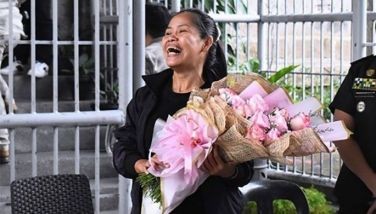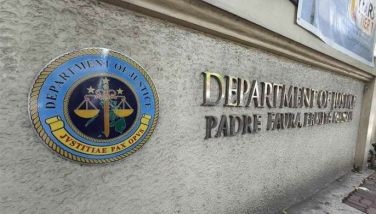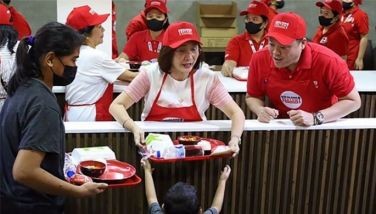Rebel returnee finds self in police most wanted list
August 12, 2002 | 12:00am
 BANGUED, Abra — Fifty-six-year-old Cesar Pe Benito Baroña fought the government in the hills for nearly three decades, nearly as long as the New People’s Army (NPA) which was founded in 1969.
BANGUED, Abra — Fifty-six-year-old Cesar Pe Benito Baroña fought the government in the hills for nearly three decades, nearly as long as the New People’s Army (NPA) which was founded in 1969.
He was one of the most wanted communist guerrilla leaders in the Cordilleras, slipping from police and military dragnets in Baguio City, Manila and Abra, his home-province.
As a rebel commander, Ka Yukan, as he was known to his former comrades and barrio folk, was a hero among Abra’s Tingguians. He led natives who fought against the Cellophil Resources Corp. which denuded the mountains of Abra and Mt. Province.
But in 1995, he decided to give himself up. Accompanied by Abra Gov. Vicente Valera, he went to Camp Crame to surrender.
He thought he had been completely "cleared" of his past rebel activities.
Baroña, however, was shocked to learn that he was in the "most wanted list" of the police, along with notorious criminals, in the Cordilleras. Posters bearing his name and mug shot and that of the fugitives were distributed all over the region, including Abra.
He said he thought that criminal cases lodged against him for his past rebel activities had been cleared when he sought amnesty.
"Akala ko di ko na kinakailangan harapin yung mga kinaso nilang criminal sa akin (I thought I need not have to face the criminal cases they filed against me)," he said.
Calixto said Baroña did not go through the normal process via the local amnesty board in this city. "His criminal cases would have been reviewed before he was granted amnesty. That is the process," he said.
In 1995, Baroña carried a P70,000 prize on his head.
Beverly Longid, head of Dinteg, a Baguio-based legal center, said Baroña’s case is nothing new, adding that other rebel returnees suffered from the same ordeal. "That’s how deceptive the so-called amnesty program is," she said.
Longid claimed that the amnesty program is a "snake pit" to cheat rebels into surfacing and later charging them with criminal offenses that will land them in jail.
Upon learning about his inclusion in the most wanted list, Baroña went to see Gov. Valera, Rep. Chito Bersamin and police authorities.
"I am also surprised to know about this. He has been with the government for seven years now. What is this?" Valera said.
Baroña now heads the Abra Small-Scale Miners Association. But as he goes around meeting with local officials and barrio folk, he brings with him his amnesty papers, fearing that police or military intelligence agents might just pick him up.
BrandSpace Articles
<
>
- Latest
- Trending
Trending
Latest
Trending
Latest
Recommended






























